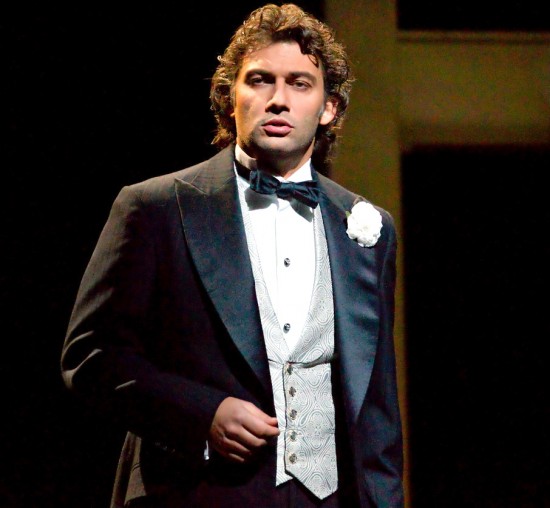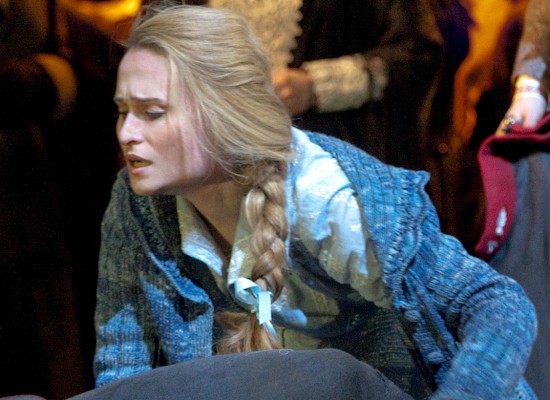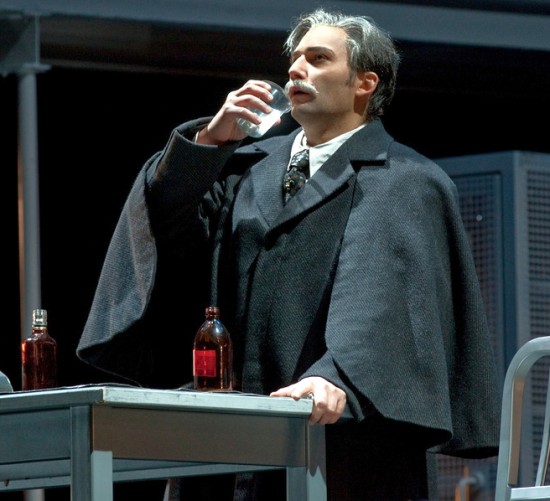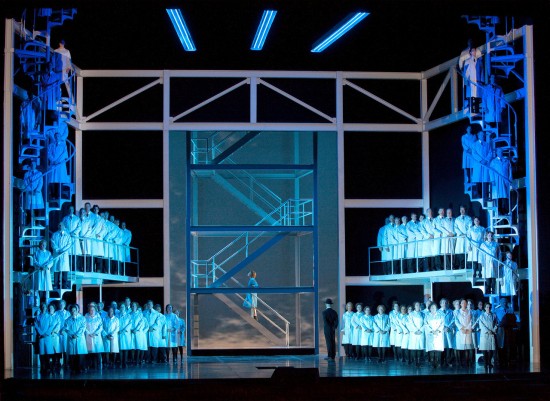The visual part of the opera begins before the curtain goes up. A much-larger-than-life photograph of a woman’s head is displayed in the center of the curtain. In black-and white, slightly impressionistic, with haunting eyes staring directly at you. In complete repose, but not static. The eyes may close; the angle may shift. It is always there, whenever the curtain is about to open. It is, of course, the face of Marina Poplavskaya in her role as Marguerite.
I have seen 2½ productions of Faust in the last couple of years plus at least two more in the more distant past. As I wrote in my review of the San Francisco Opera’s presentation in June 2010, “The only complaint I have with M. Gounod is that I don’t like his title! To be sure, the opera starts with Faust, but at the end the focus is on Marguerite. The climax occurs when she dies and goes to heaven – it’s not clear and I don’t particularly care what happens to Faust or MÉphistophÉlès.”
I am not the only person to think that Marguerite is the focus. In one of the between-act interviews Joyce DiDonato asked tenor Jonas Kaufmann (Faust) if this role was more difficult than other lead roles he has sung. He replied that it was one of the easiest “because I am not the star.”
Whereas when Marina Poplavskaya answered the same question she said, “Yes, because I must totally change my personality between Acts II and III.” She does it magnificently. In Act II she is young and pretty and vibrant and popular. Every pose, every gesture, every facial expression shows all of this, as does every note Gounod gives her to sing. She does a superb job of conveying all the emotions struggling within her under the attentions of Faust.
Act III is less than 9 months later, but Marguerite is now an old woman about to give birth. She is friendless, exhausted, utterly miserable. And everything in her acting and singing now reflects this very different person.
Of course Faust also has to make a drastic change in his personality. Director Des McAnuff has successfully updated the ancient play by changing Faust from an old medieval philosopher realizing the futility of all his knowledge to an elderly atomic scientist realizing with horror that he was responsible for Hiroshima and Nagasaki. It seems quite reasonable that he should curse God and acknowledge MÉphistophÉlès without really believing in either. But when the Devil shows him a vision of Marguerite he eagerly signs the deed and exits to regain his youth.
Which may have been the most tense part of the opera for Jonas Kaufmann. He has only a very few minutes in real time off stage to remove his beard and age-lines from his face and completely change his costume before reentering as a dapper young man at the beginning of World War I. He a simple young man – just a mass of raging hormones focused on Marguerite, and it doesn’t give Kaufmann much chance to show us whether or not he’s a good actor; but plenty of opportunity to demonstrate that he’s a first class singer.
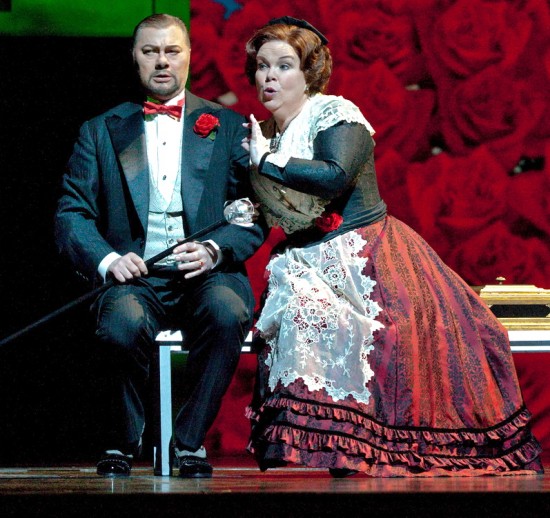
MÉphistophÉlès is also brought up to date. No horns or tail on RenÉ Pape and the only red is a carnation boutonnière accenting the whiteness of his impeccable white suit. A very urbane devil, indeed, who doesn’t seem to be overly involved in his profession. At the very end of the opera when he is balked of his real prey, he and Faust just sink quietly into the ground without any noticeable distress.
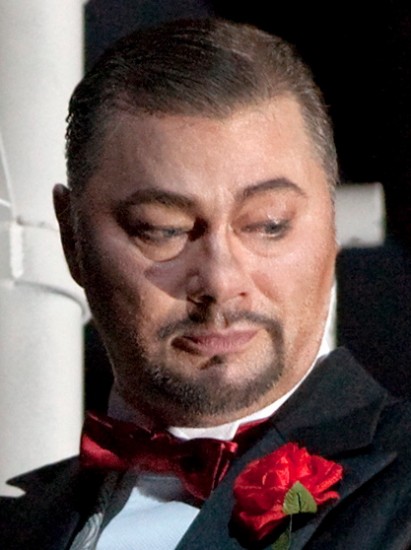
Kudos to the unnamed makeup artist responsible for his face. Regardless of costume, one glance at that face is all it takes to identify its owner as the Devil.
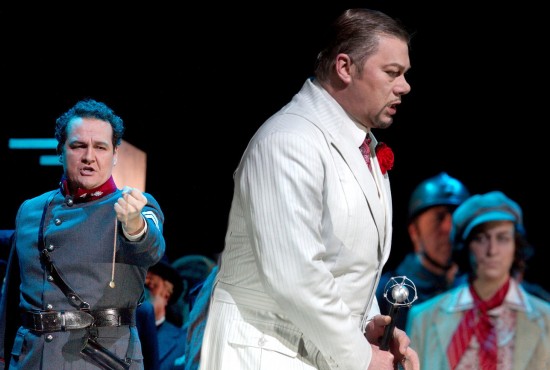
When I go to a Met production, HD or live, I expect to thoroughly enjoy the first-rate voices of the singers – and I was not disappointed. All of Gounod’s music is very listenable, and I don’t get the least bit tired of hearing the Soldier’s Chorus or the Waltz again and again. Not only the three leads, but also all of the supporting artists – Russell Braun (Valentin), Michèle Losier (Siebel), Wendy White (Marthe), and Jonathan Beyer (Wagner) – were excellent.
At the very end of the opera, Marguerite dies and ascends to heaven leaving Faust and MÉphistophÉlès behind – and forgotten. Gounod’s story is over, but his lovely music goes on for another minute or so. I can imagine any director licking his lips over this opportunity to stage his own little epilog to the tale. During his interview, Des McAnuff said explicitly that he would not give away his surprise ending, so I will only say that it was totally different from the epilog that Jose Maria Condemi staged for SF Opera or from any other Faust that I have seen.
The Encore will be playing at a theatre near you at 6:30 pm local time on Wednesday January 11, 2012; I hope to see it again.
Live in HD
Tickets and Customer Care 212-362-6000
Photos, except as noted: Ken Howard/Metropolitan Opera
This review by Philip G Hodge appeared in sanfranciscosplash.com on December 14, 2011.


